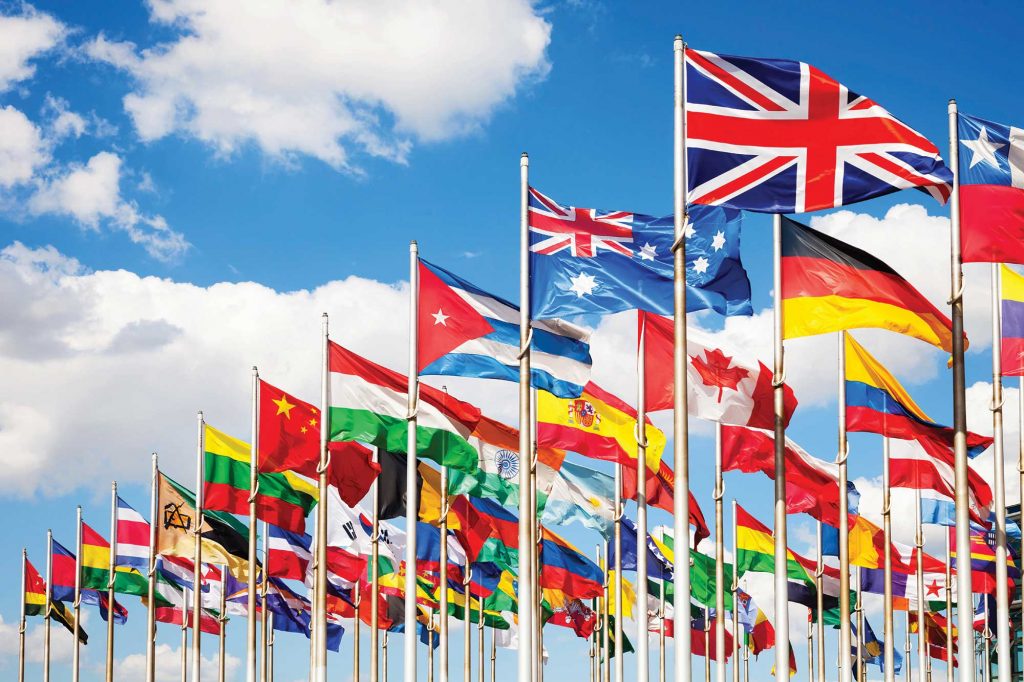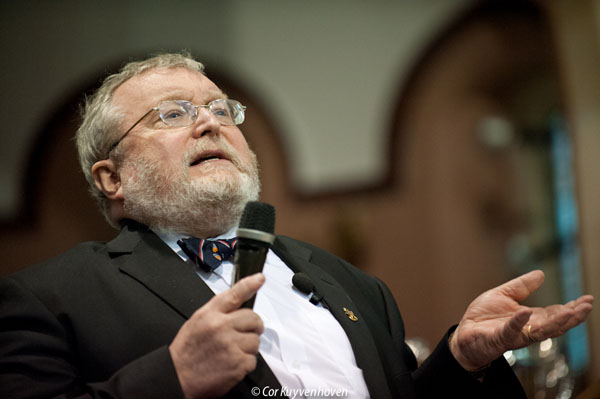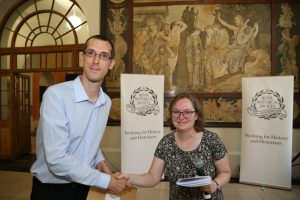Politics and Contemporary History Research Group


Remembering Eric Grove (1948-2021)
Former students of the BA in Contemporary Military and International History (CMIH), as well as staff in Politics and Contemporary History, University of Salford, were saddened to learn yesterday of the death of Eric Grove, formerly Professor of Naval History at Salford. Eric was a larger than life figure, who helped invigorate the CMIH degree when he arrived in Salford in 2005. He was a major national figure in the field of naval history, regularly invited to international conference, and also a prolific writer and broadcaster.
In addition to his many and varied writings on a range of naval topics, not to mention his extremely effective defence journalism, he made two especially important scholarly contributions to naval history: Vanguard to Trident: British Naval Policy since World War II (Naval Institute Press, 1987), and The Future of Sea Power (Routledge, 1990). He also edited a scholarly edition of Julian Corbett’s seminal work, Some Principles of Maritime Strategy. In order to record our gratitude for his contribution to the University of Salford, two current members of staff and former colleagues provide their memories of Eric Grove as a tribute from Salford and on behalf of his former students.
Alaric Searle, Professor of Modern European History, University of Salford
“My memories of Eric are very closely tied to my own career at the University of Salford. After spending fifteen years studying and teaching in Germany, I returned to Britain for my first, full-time academic job when I took up a lecturer position in military history at Salford. You always remember your first day at work – it was 1 September 2005. Another reason it was memorable was that I was joined on that day by a new colleague, Eric Grove, who had been allocated the office next to me.
In many ways, we were complete opposites. Influenced strongly by German academic traditions, my lectures were probably too script-centred, even if punctuated by occasional anecdotes. Eric, as all who knew him will remember, was the master of the unscripted lecture, drawing from his vast knowledge of history and military affairs. In this art, he was in his element and excelled. His capacity to remember technical details, and arresting anecdotes, was legendary among a generation of Salford military (and naval) history students. Eric injected zest, verve and colour into the degree programme, as well as providing an important (maritime) counterweight to my (and others) focus on land warfare.
But if we were very different in our academic inclinations, there were several biographical commonalities between us. Eric had attended school in Aberdeen, and completed his first degree, a good, solid Scottish MA, at the University of Aberdeen. Not only did I also hold a Scottish MA, I had grown up near the granite city. To this was added the fact that I had set up home with my young family on the outskirts of Bolton, the city in which he was born. During regular lunches at The Crescent pub Eric provided an important education for me in the history of Lancashire. This was often extremely helpful. For instance, when I made a hash of pronouncing ‘Hall-i-th-Wood’, he politely corrected my mispronunciation without so much as a smile at my verbal faux pas. He supplemented my knowledge of Bolton with further recollections of Manchester and Salford in the 1950s.
In the ‘classroom’ of The Crescent, Eric was able to complete my education of naval history over lunch. This social side of academia is increasingly disappearing under a sea of targets, spread sheets, action plans, and meetings (which now often begin before 2pm). And we are so much the poorer for it. Possessing little knowledge of naval history, customs, conventions, personalities, and historical controversies, these lunchtime ‘tutorials’ expanded my horizons enormously. To these were added the various guest lecturers by leading figures in the Royal Navy which he organised, using his impressive range of naval contacts.
Although very much his junior, he was still generous enough to seek my advice on occasions. When he decided to put in for promotion to Chair, he showed me his CV and asked whether anything might be improved. And he took on board the one or two minor comments I had made. His generous spirit also manifested itself when he offered to take my children on a tour of the main attractions along the sea front in Blackpool; and, in a very un-Aberdonian fashion, he paid for their rides on the attractions.
When it came to administrative matters, Eric’s office was organised in a rather unconventional fashion. Over the years, his desk became a unique form of filing system. Yet, despite his very individual approach to paperwork, his enthusiasm for teaching never waned, nor his desire to communicate his encyclopaedic knowledge of naval affairs, and military history in general. He was never an academic who ‘kept one eye on the clock’; if a student or a colleague was interested in a particular subject, he would share his knowledge freely and as ever with his trade-mark enthusiasm. He could always energise a seminar with interesting questions, a striking turn of phrase, or a sudden flash of insight. Several generations of Salford students, not to mention his previous students at the University of Hull, will look back with extremely fond memories of his lectures, entertaining tales, and his mastery of the art of the raconteur.
His knowledge of naval affairs was unrivalled. As a specialist in more land-based research fields, I will leave comments on his contribution to naval history and maritime security to others. But as a former colleague, I am more than qualified to say that he will be sorely missed”.
Brian Hall, Lecturer in Contemporary Military History, University of Salford
“Whilst undertaking my doctoral studies as part of the graduate teaching assistant scheme at Salford between 2005 and 2009, and then as a part-time lecturer between 2010 and 2011, I had the honour and privilege of working alongside Eric, notably as a seminar tutor for some of his undergraduate modules. Despite his status as one of the country’s leading experts in the field of naval history, which often saw him making regular appearances on television and radio news programmes and history documentaries, he was nothing other than warm, friendly and courteous, and always had the time of day to offer help and advice. I, like the students he taught, was simply mesmerised by his forensic knowledge of his subject, delivering lectures with an infectious and energetic enthusiasm that made him very popular amongst students and staff alike.
As a fellow Boltonian, I would often meet Eric on the daily rail commute to Salford, he travelling in from Blackpool where he lived, while I got on at Bolton. In the 15 minutes or so that that journey entailed, he would often provide me with his expert analysis of current national defence and security matters – he was particularly scathing of the 2010 UK Strategic Defence and Security Review, for instance – as well as sharing his passion of steam locomotives and railway history. Perhaps my fondest memory of him was the day he delivered a key-note address at an academic conference held at Salford that explored the history of First World War tanks. Having met him on the train that morning, he was positively brimming with enthusiasm over a book he had recently purchased and which he told me was going to form the basis of his speech. When the time came later that day, he delivered a captivating and stimulating 45-minute address, without a prepared script, notes or slides, in which he held the audience in the palm of his hand. It was an inspired performance and one that further fuelled my desire to become an academic historian.
Eric was a national treasure and will be sorely missed. My sincerest condolences to his family and friends”.
About Us:
The Politics and Contemporary History research cluster is interested in a variety of political and historical themes grouped around the field of International Security in its broadest sense. At the same time, members of staff also have research interests around European party politics, ideologies, intelligence studies (including the history of intelligence), military history (especially land warfare, air power and theories of war), counter-insurgency, counter-terrorism, and several other aspects of international politics and security, covering Europe, the Middle East, Latin America and Asia.
Politics and Contemporary are viewed by the group as mutually reinforcing disciplines; Contemporary History is defined in the more traditional since of history since 1789. Our political scientists understand the importance of historical background; our historians are interested in applying historical knowledge and experience to contemporary problems and challenges. The group welcomes cross- and interdisciplinary research projects. The activities of the group and its development in recent years are influenced mostly by the notion of ‘Area Studies’.
Research themes
- International Security (inter-state relations, security policies and future of conflict)
- EU Politics (Eastern and Central Europe, women’s participation in politics)
- Italian Politics (political system, government, parties)
- Comparative European Politics (parties of the left, political corruption)
- British Politics (elections and the use of new media)
- Intelligence History and Studies (British and German intelligence, media portrayals of intelligence activities, freedom of information and intelligence)
- Military History in the 19th and 20th Centuries (land warfare, tactics, communications, organisation, air power, theories of war, doctrine)
- Counter-insurgency (British and American experience, doctrine, interrogation techniques)
- Terrorism, Counter-terrorism and organised crime (governmental policies, techniques and theories, drug cartels)
- History of Ideologies (Communism, Fascism, left-wing movements, history of Socialism)
Recent and current projects (selection):
- Cold War politics, culture and intelligence activities (Dr. Nick Barnett, Dr. Dan Lomas).
- The use of social media in British elections (Dr. Stephen Ward).
- Chinese foreign policy (Dr. Fuzou Wu).
- International collaboration in the development of mechanized vehicles (Prof. Alaric Searle).
- Italian government responses to the Covid-19 pandemic (Prof. Martin Bull).
- Terrorism and media (Dr. Anna Kruglova).
- Ancient Chinese military theory in a comparative context (Prof. Alaric Searle).
- Gender and EU politics (Dr. Cristina Chiva).
- Drug cartels in Latin America (Dr. David Maher).
- British intelligence since 1909 (Dr. Christopher J. Murphy).
- Controversial British interrogation techniques (Dr. Samantha Newbery).
- Diversity and the UK’s British intelligence services (Dr. Dan Lomas).
- The British Army during the First World War (Dr. Brian Hall).
The Team
- Prof. Alaric Searle
- Prof. Martin Bull
- Prof. John Callaghan
- Dr. Nicholas Barnett
- Dr. Christina Chiva
- Dr. Brian Hall
- Dr. Anna Kruglova
- Dr. Dan Lomas
- Dr. David Maher
- Dr Christopher J. Murphy
- Dr. Samantha Newbery
- Dr. Steve Ward
- Dr. Fuzou Wu
Selected publications
Nicholas Barnett (2018) Britain’s Cold War: Culture, Modernity and the Soviet Threat, London: I.B. Tauris.
Nick Barnett (2019), ‘Cold War Nostalgia in The Game‘, Journal of British Cinema and Television, 15(3).
Martin Bull, et. al. (2018), ‘Italian politics in an era of recession : the end of bipolarism?‘ , South European Society and Politics, 23 (1) , pp. 1-12.
Martin Bull (2020), ‘The Radical Left since 1989: Decline, Transformation and Revival’, in Eleni Braat and Pepijn Corduwener (eds), 1989 and the West: Western Europe since the End of the Cold War, London: Routledge.
John Callaghan, et. al. (2019), Ideologies of US Foreign Policy, Routledge.
Cristina Chiva (2017), 2017, Gender, institutions and political representation : reproducing male dominance in Europe’s new democracies, Palgrave Macmillan.
Brian Hall (2017), Communications and British Operations on the Western Front, Cambridge: Cambridge University Press. Winner of the 2018 Royal Historical Society Whitfield Prize.
Anna Kruglova (2020), ‘I Will Tell You a Story about Jihad: ISIS’s Propaganda and Narrative Advertising‘, Studies in Conflict & Terrorism, 44, no. 2.
Daniel Lomas (2017), Intelligence, Security and the Attlee Governments, 1945 – 1951, Manchester: Manchester University Press. Shortlisted for the 2018 Royal Historical Society Whitefield Prize.
Daniel Lomas and Christopher J Murphy (2019), Intelligence and Espionage: Secrets and Spies, Routledge.
Daniel Lomas (2019), ‘“Crocodiles in the corridors” : security vetting, race and Whitehall, 1945 – 1968‘ , Journal of Imperial and Commonwealth History.
Daniel Lomas (2021), ‘Party Politics and Intelligence: the Labour Party, British intelligence and oversight, 1979 – 1994‘, Intelligence and National Security.
David Maher (2018), Civil War and Uncivil Development: Economic Globalization and Political Violence in Columbia and Beyond, Houndmills, Palgrave.
David Maher and Moritz Pieper (2020), ‘Russian intervention in Syria: exploring the nexus between regime consolidation and energy transnationalisation‘, Political Studies.
Christopher J. Murphy (2019), ‘Dramatising intelligence history on the BBC : the Camp 020 affair‘ , Intelligence and National Security, 34, no. 5, pp. 668-702.
Samantha Newbery (2015), Interrogation, Intelligence and Security: Controversial British interrogation techniques, Manchester: Manchester University Press.
Samantha Newbery, ‘Inter- and intra-agency intelligence liaison during ‘the Troubles‘, Small Wars & Insurgencies, December 2020.
Alaric Searle (2017), The military papers and correspondence of Major-General J.F.C. Fuller, 1916-1933, Stroud: The History Press.
Alaric Searle (2017), Armored Warfare: A Military, Political and Global History, London: Bloomsbury.
Stephen Ward and Liam McLoughlin (2020), ‘Turds, traitors and tossers: the abuse of UK MPs via Twitter‘, Journal of Legislative Studies, 26, no. 1.
Stephen Ward, et. al. (2020), ‘A tale of three tribes : UK MPs, Twitter and the EU Referendum‘, Information Polity, 25, no. 1.
Fuzou Wu (2018), Energy and Climate Change Policies in China and India: a two-level comparative study, Cambridge: Cambridge University Press.
News
Prof. Martin Bull writes for LSE Politics Blog on the significant realignment in Italian politics (February 2021).
Dr. Dan Lomas argues that the British Labour Party’s attitudes towards the UK’s intelligence agencies has often been complex for LSE Politics Blog (February 2021).
Dr. Christopher J Murphy reflects on the passing on spy writer John Le Carré and his work (December 2020).
Samantha Newbery, ‘Digital Rights are Human Rights: The right to be free from torture’, blog for World Human Rights Day, commissioned by the Digital Freedom Fund, 27 November 2020 (November 2020).
Prof. Martin Bull announced as co-editor of ECPR’s new blog, ‘The Loop’. (July 2020).
Salford academics mark LGBT History Month by looking at the FCO bar to gay men and women (February 2020).
Salford welcomes Professor of Environmental History from China (February 2020).
Outgoing ECPR Director Martin Bull honoured after more than 25 years’ service (September 2019).
Research from Dr. Dan Lomas on race and security appears in The Guardian newspaper (October 2018).
PCH Staff engagement at Nankai University, China: Prof Alaric Searle delivered a four-week course on ‘Classic Works of British Historiography’ to undergraduates in the Faculty of History (September 2018).
Dr Brian Hall, Lecturer in Contemporary Military and International History, awarded the ‘Whitfield Prize for 2018’ for the best first book on British or Irish History by the Royal Historical Society.

Salford Historian offered distinguished visiting Professorship at Chinese University (August 2016).
PhD opportunities
In broad terms our research interests can be grouped under the following headings (although this list does not exclude other areas):
- International Security
- European Politics
- Military History
- Terrorism Studies and Counter-insurgency
- Intelligence Studies (including history of intelligence)
- The History of the Cold War
(Prospective students are also advised to examine staff members’ research specialisms and ask them whether they may be interested in a particular topic.)
Recent PhD research has been funded by a number of bodies, among them the University of Salford Pathways to Excellence Fund and the Graduate Teaching Scheme, the Arts and Humanities Research Council and the Monica Cockfield Trust.
Contact
Dr Dan Lomas
Lecturer in International History
Directorate of English, Politics and Contemporary History
School of Arts and Media
Maxwell Building
Salford M5 4WT